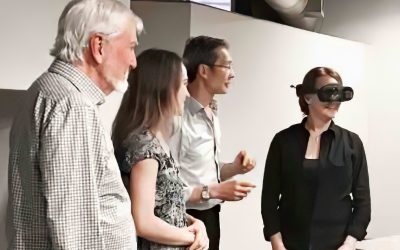From a pool of 24 applications, eight outstanding projects were selected for Stage I of the programme, which will provide pump-priming funding of up to £150K for one year. Successful awardees will give updates after nine months, and subject to progress will be invited to apply for the second stage of the programme, where up to an additional £1M may be awarded for up to three years.
The international panel of expert reviewers were particularly impressed with the calibre and diversity of projects submitted from across the Institute, ranging in subject from synapses to sleep.
Project title: Lost in space and (circadian) time: Investigating the role of disrupted deep brain circuitry in diminished spatial memory function in Alzheimer’s disease
Disruption in sleep-wake cycles can occur decades before the hallmark memory symptoms of Alzheimer’s start, but little is known about how impairments in deep brain regions like the hypothalamus – responsible for controlling the body’s internal clock – affect spatial memory and other cognitive processes. This project aims to use animal models to study how Alzheimer’s pathology-related impairments in these deep brain structures affect the hippocampal function to cause memory deficits.








